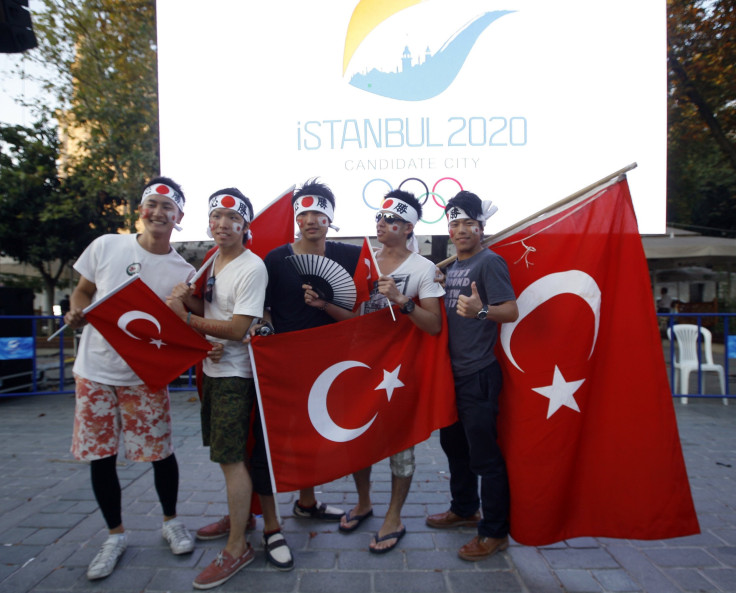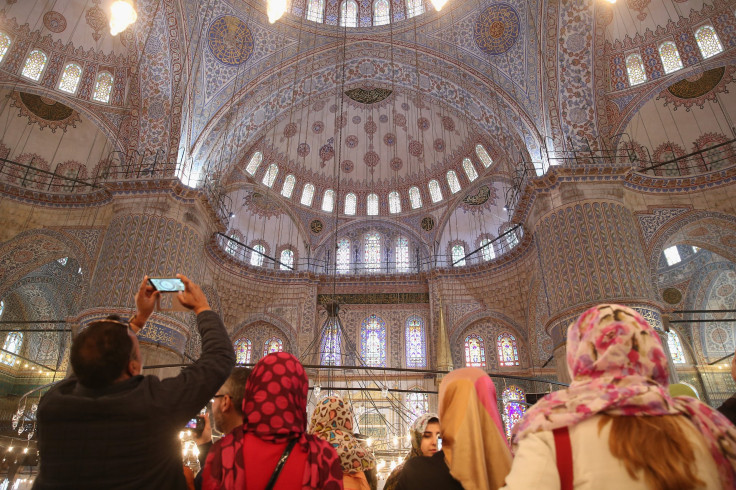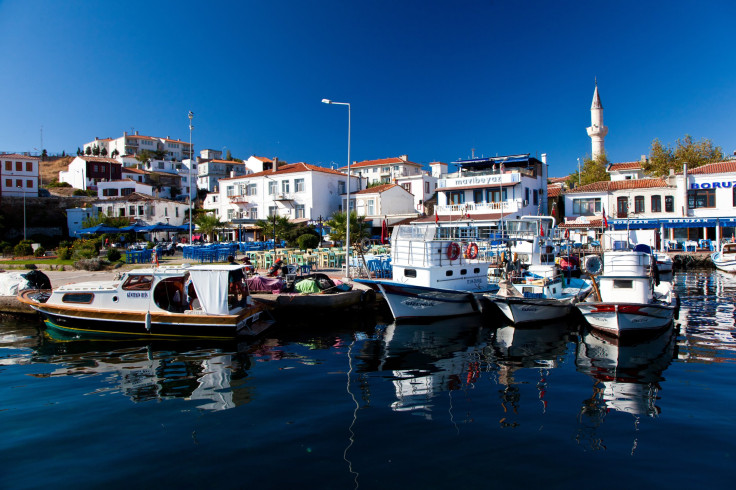Turkey Tourism Safety 2015: After Election, Istanbul Travel Industry Remains Vulnerable Despite Hope Of Political Stability

After weeks of lowering lodging prices in order to fill rooms and compete with neighboring hotels, Turkish hostel manager Onur Kalaniz finally saw an uptick in guests after the ruling Justice and Development Party regained its parliamentary majority during Sunday's election. The 46-bed hostel located in the heart of Istanbul’s Sultanahmet district and within walking distance of the historic Blue Mosque was nearly full Monday night, he said.
“After one day, the money is better,” said Kalaniz, who didn’t have permission to give the name of the hostel. “But if anything happens around here, it will shake tourism directly. Any bump is very bad for all of us.”
Turkey's election results Sunday offered the promise of stability after months of political unrest and violence in the Middle East's most popular travel destination. But analysts said the nation's formidable tourism industry remains vulnerable amid lingering security concerns. After enjoying $35 billion in total tourism revenues last year, Turkey’s tourism profits fell 4.4 percent to $12.29 billion in the third quarter this year, the country’s statistics agency said Friday, three weeks after two Islamic State suicide bombers killed more than 100 people in the capital Ankara. The terror attack, the deadliest in modern Turkish history, has deepened political divisions and deterred tourists from visiting Turkey’s white-sand beaches, olive groves and ancient cities.
“Security risks remain very prominent, and this will continue to weigh on tourism flows from the European Union and other Western nations,” said Lucas dos Santos, a strategist on Europe, the Middle East and Africa at BMI Research firm in London. “The Oct. 10 Ankara twin suicide bombings highlighted Turkey’s vulnerability to Islamic terrorism.”
Since the attack, Kalaniz said, nightly rates at the hostel have plunged to an all-time low of 9.80 euros, which includes breakfast, Wi-Fi and hot water. Kalaniz has managed to fill about 80 percent of the rooms in the past two months, slightly more than the same period last year, but the hostel is making less money because of the rock-bottom prices. The struggling industry was what prompted Kalaniz, 37, to vote for the first time ever. He cast a ballot Sunday for the ruling Justice and Development Party (AKP), even though he doesn’t fully support the group or any political faction.
“I had to. I thought twice and again twice and then finally I said, 'OK, let’s make a better economy and better security.'” he said during a telephone interview Monday. “I felt like a virgin because it was my first time,” he joked.

After failing to win a majority in the June general election, the AKP, led by Turkish President Recep Tayyip Erdoğan, won 49.4 percent of the vote compared to 25.4 percent for the main opposition party, Republican People’s Party. The majority win Sunday for AKP will yield 316 seats in Turkey’s Parliament.
But the country, which straddles Eastern Europe and Western Asia, remains deeply polarized over the ruling AKP’s handling of the civil war in neighboring Syria, as well as the Kurdistan Workers Party, an armed Kurdish group in Turkey that seeks a Kurdish state. A fragile ceasefire collapsed in July between the Turkish army and the militants, who have fought against the government for decades. As election results were being counted Sunday, clashes erupted between Turkish security forces and Kurdish protesters in the mainly Kurdish city of Diyarbakir, Reuters reported.
"How can Turkey overcome this polarization? It's difficult to say," wrote Sinan Ekim and Kemal Kirisci in a recent analysis for the Brookings Institution, a think tank in Washington, D.C. "What is certain is that distancing Turkey from the brink of a civil war will be one of the greatest challenges for the country's next administration."
Erdoğan has acknowledged the hurdles but said his AKP party can reach its economic targets by securing political stability and implementing more political and economic reforms. “We aim to make Turkey a country with gross national product of $2 trillion, per capita income of $25,000 and $500 billion in exports” by 2023, the 100th anniversary of the republic, Erdoğan told potential investors during a visit to Tokyo in October, according to the Wall Street Journal.
After the AKP’s election victory, the Turkish lira gained 3 percent against the U.S. dollar to 2.8158, its biggest leap since 2008, and the Bora Istanbul 100 Index was up 5 percent in Monday’s morning trade to its highest level since July with the largest single-day gain in two years.
But hotels in Istanbul, once a popular tourist destination, continued to struggle. All 14 rooms at Istanbul City Guesthouse in the Sultanahmet district were vacant Monday night. The guesthouse has had to slash its nightly rate and neighboring hotels are not faring any better, front desk employee Sukru Jilidz said.
“It’s not good. Next week, we have just three rooms [booked],” he said during a telephone interview Monday. “We take the price down, now it’s 32 euros but no customers. Normally in season, it’s 60 to 75 euros.”

With its unique blend of Western and Eastern culture, Turkey became the world's sixth most attractive tourist destination last year, with a record 42 million visitors injecting billions into the nation’s economy. Tens of thousands of people flocked to Turkey’s Roman ruins, the Turquoise Coast, the Old City of Istanbul and other popular sights. Italy attracted the fifth most visitors with 47 million travelers, according to a World Tourism Organization 2014 report.
But the number of foreign arrivals began to decline when the European Union imposed sanctions against Russia over the crisis in Ukraine last year. Russia’s ensuing economic recession has limited a significant source of tourism revenue for Turkey, which hosts some 4.5 million Russian tourists annually. Nine countries, including Germany and Russia, issued travel advisories to their citizens, discouraging travel to Turkey’s border regions after a suicide bombing killed 32 people in the Turkish town of Suruc in July. Germans made up the bulk of Turkey’s tourism arrivals last year at 14.3 percent, while Russians covered 12.2 percent.
Turkey’s recent involvement in Syria’s ongoing civil war has also threatened the country’s reputation as one of the safer Middle Eastern nations, analysts said. Erdoğan’s administration has maintained that any security measures in Syria, where the Islamic State group is vying for control, are aimed at securing Turkey's southern border.
“Turkey's tourism figures have indeed suffered recently,” Lucas at BMI Research said Monday. “We see limited potential for a quick rebound in Russian tourism, as the economy will be slow to recover, while the government's recent involvement in Syria will only serve to further portray neighboring Turkey as a precarious destination.”
Although business is tough, Kalaniz, the hostel manager, has kept hopeful that tourism will improve in Istanbul. "If you look at the head count, we are not satisfied," he said Monday. "But we have guests. This building is not empty; there is breakfast every day and people inside. It makes us happy."
© Copyright IBTimes 2025. All rights reserved.





















